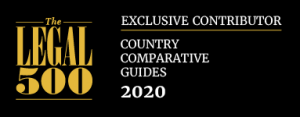 Cains’ Banking and Finance team is delighted to have served as contributing editors of the Isle of Man chapter within the recently published The Legal 500: Banking & Finance Country Comparative Guide 3rdEdition.
Cains’ Banking and Finance team is delighted to have served as contributing editors of the Isle of Man chapter within the recently published The Legal 500: Banking & Finance Country Comparative Guide 3rdEdition.
Published by Legalese and The Legal 500, the definitive global law guide provides a comprehensive and pragmatic insight into the current issues affecting banking and finance from across a variety of jurisdictions.
Tim Shephard, Stephanie Chew and Kirsten Middleton, joined top ranked lawyers offering analysis on topics such as national authorities, regulation, licenses, organisational requirements, supervision and assets, as well as insight and opinion on the most common laws and regulations that may occur in Isle of Man.
To read the Isle of Man chapter online click here or for a pdf version click download it here.
Below is a short excerpt from the guide.
Isle of Man: Banking and Finance
What are the national authorities for banking regulation, supervision and resolution in your jurisdiction?
All banks in the Isle of Man are subject to a licensing and supervision regime administered by the Financial Services Authority (“FSA”). The FSA is an independent statutory body whose functions include, amongst other things, the licensing, supervision and regulation of deposit takers, insurance companies, money transmission services and credit unions.
The Isle of Man Office of Fair Trading (“OFT”) has a role in the registration and regulation of moneylenders.
In your view, what are the recent trends in bank regulation in your jurisdiction?
In the wake of the global financial crisis of 2008, international governments have been working to ensure that the cost burden of any future bank failure is for the account of its shareholders and creditors, and not for the taxpayers. One learning from the financial crisis was the need for banks themselves to develop detailed resolution plans (sometimes referred to as living wills) as to how they would seek to recover from a stress event, or events, serious enough to threaten the viability of the bank. The FSA requires banks incorporated in the Isle of Man to prepare recovery plans and to keep them up to date. The Bill (as defined in question 22 above) is the Isle of Man’s response and adaptation of the “Key Attributes of Effective Resolution Regiames for Financial Institutions”, published by the Financial Stability Board, a body created by the G20 Governments in response to the financial crisis.
There has also been a wave of recent reforms on the Island following MONEYVAL’s assessment in 2016 and published mutual evaluation report in December 2016 (“MER”). The MER demonstrated that, whilst the Isle of Man had a strong technical framework, more work needed to be carried out to make it effective in practice. In particular there were a number of important recommendations made concerning financial intelligence, financial investigation and prosecution and recovering the proceeds of crime. The Isle of Man government, regulatory and law enforcement authorities have undertaken a considerable amount of work to address the issues identified in the MER. This includes significant investment in the Financial Crime Unit, the Economic Crime Unit (which conducts investigations) and the introduction of a dedicated Asset Recovery Unit, specifically to identify restraint and confiscate the proceeds of crime. The Isle of Man is also now reporting back to MONEYVAL on an annual basis to confirm the improvements that have bene delivered in relation to the recommendations made within the MER.
What do you believe to be the biggest threat to the success of the financial sector in your jurisdiction?
The uncertainties surrounding the long term consequences of Brexit and possible loss of passporting is a threat to not only the UK but also the Island’s financial sector, along with the need to replicate or renegotiate European regulations which have been implemented in the Isle of Man (either directly or in conjunction with the Island’s relationship with the UK).